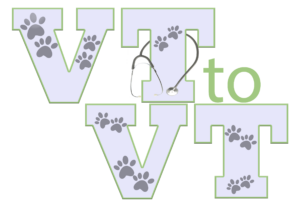Ever wondered what a typical day looks like for a veterinary technician? It’s a dynamic and demanding role filled with diverse responsibilities, from providing compassionate care to animals to assisting with complex medical procedures. This post will offer a glimpse into the daily life of a veterinary technician, highlighting the variety of tasks and the skills required to excel in this rewarding profession.
A Typical Day: From Morning to Evening
While no two days are exactly alike, a typical day for a veterinary technician often involves a mix of the following:
Morning:
- Opening Procedures: Arriving early to prepare the clinic for the day. This may include cleaning and sanitizing exam rooms and surgical suites, stocking supplies, and checking equipment.
- Patient Check-in and Triage: Assisting with checking in patients, obtaining brief histories from clients, and taking initial vital signs. In emergency clinics, this includes performing triage to prioritize patients based on the severity of their condition.
- Assisting with Appointments: Assisting veterinarians with appointments, including obtaining patient histories, performing physical examinations, restraining animals, and educating clients.
- Performing Laboratory Tests: Running various laboratory tests, such as blood counts, urinalysis, and fecal examinations.
Mid-day:
- Surgical Procedures: Assisting with surgical procedures, including preparing the surgical suite, monitoring anesthesia, and providing post-operative care.
- Treatments and Procedures: Administering medications, performing wound care, placing intravenous catheters, and assisting with other procedures as needed.
- Client Communication: Communicating with clients about their pet’s condition, treatment plans, and home care instructions.
- Lunch Break: Taking a well-deserved break to recharge.
Afternoon:
- Continuing Appointments and Treatments: Continuing to assist with appointments and treatments, as well as monitoring hospitalized patients.
- Client Education: Providing client education on various topics, such as preventative care, nutrition, and behavior.
- Preparing for Closing: Cleaning and sanitizing the clinic, restocking supplies, and preparing for the next day.
Evening (in Emergency Clinics):
- Continuing to Treat Incoming Emergencies: Managing incoming emergency cases throughout the night.
- Monitoring Hospitalized Patients: Providing overnight care and monitoring to hospitalized patients.
Key Responsibilities Throughout the Day:
- Animal Handling and Restraint: Safely and humanely handling and restraining animals of various species, sizes, and temperaments.
- Medication Administration: Calculating drug dosages and administering medications via various routes.
- Laboratory Procedures: Performing various laboratory tests and interpreting results.
- Surgical Assisting: Assisting with surgical procedures and monitoring anesthesia.
- Diagnostic Imaging: Assisting with radiography, ultrasound, and other imaging modalities.
- Client Communication and Education: Communicating effectively with clients and providing patient education.
- Maintaining Medical Records: Keeping accurate and up-to-date medical records.
- Maintaining a Clean and Safe Environment: Ensuring the clinic is clean, organized, and safe for both animals and staff.
Question 1: What are some examples of client education topics that a vet tech might discuss?
Answer: Veterinary technicians often educate clients on a variety of topics, including:
- Vaccination Protocols: Explaining the importance of vaccinations and recommended vaccination schedules.
- Parasite Prevention: Educating clients about heartworm prevention, flea and tick control, and other parasite prevention measures.
- Nutrition and Weight Management: Providing guidance on appropriate diets and weight management strategies.
- Dental Care: Educating clients about the importance of dental hygiene and providing instructions on home dental care.
- Post-Operative Care: Providing detailed instructions on wound care, medication administration, and activity restrictions after surgery.
- Behavior and Training: Providing basic advice on animal behavior and training techniques.
The Emotional Demands of the Job:
Working as a veterinary technician can be emotionally demanding. Technicians often witness animal suffering and provide support to grieving clients. It’s important to have strong coping mechanisms and access to support systems to manage the emotional challenges of the job.
Question 2: How can vet techs cope with the emotional challenges of the job?
Answer: There are several strategies that veterinary technicians can use to cope with the emotional challenges of the job:
- Self-Care: Prioritizing self-care activities such as exercise, healthy eating, and getting enough sleep.
- Support Systems: Building strong support systems with colleagues, friends, and family.
- Professional Counseling: Seeking professional counseling or therapy if needed.
- Utilizing Employee Assistance Programs (EAPs): Many veterinary practices offer EAPs that provide access to confidential counseling and other support services.
The Rewards of the Profession:
Despite the challenges, working as a veterinary technician is incredibly rewarding. Technicians have the opportunity to make a real difference in the lives of animals and their owners. They play a vital role in providing compassionate care, improving animal welfare, and strengthening the human-animal bond.
Question 3: What are some of the most rewarding aspects of being a vet tech?
Answer: Some of the most rewarding aspects of being a veterinary technician include:
- Making a Difference in Animal Lives: Providing care and comfort to animals in need.
- Strengthening the Human-Animal Bond: Helping to maintain and enhance the relationship between pets and their owners.
- Using Technical Skills: Applying technical skills in a challenging and dynamic environment.
- Working as Part of a Team: Collaborating with a dedicated team of veterinary professionals.
- Continuous Learning: Staying up-to-date on the latest advancements in veterinary medicine.
The daily life of a veterinary technician is diverse, demanding, and deeply rewarding. It requires a combination of technical skills, compassion, and the ability to work effectively under pressure. For those passionate about animal welfare, a career as a veterinary technician offers a unique opportunity to make a positive impact on the world.
